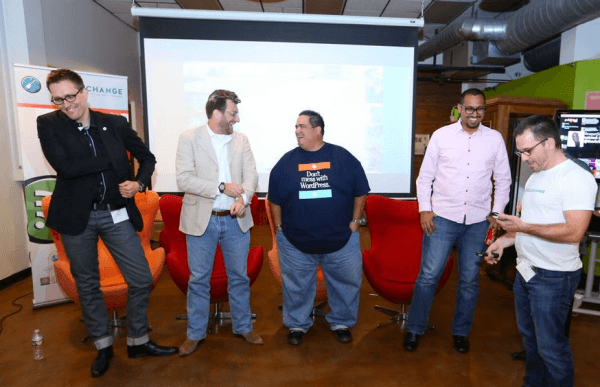
I was hesitant and an unbeliever
I once wrote a marketing white paper focused on code generation. Having read The Cathedral and the Bazaar, I was aware of the open source movement but not convinced that it would survive. I remember that most of the paper was advocating the use of our tools while taking digs at the entire concept of open source.
I must have said or written things like, “when was the last time you saw something succeed when done in committee?”
I must have highlighted that without an owner, there was “no throat to choke,” and no one responsible for support.
I hang my head in shame as I write these things but in 2000 it wasn't clear to me what kind of success Linux would have, or any other open source project. And that was kind of the issue – they were called projects, not products. So I didn't even know what would be around in a year or two.
In the enterprise space, all this translated to risk and hesitancy. So we built products using Java or Microsoft technologies and ran it all on Windows.
One company changed all that
You might think I'm about to tell you about Red Hat – a company that offered enterprise support for an open source operating system (Linux). But I'm not. Any technology can have one company behind it. It didn't sway me.
No, the company that changed it all was IBM. And the reason was because a) they were an established player in the enterprise technology market, and b) they treated it seriously.
I remember being on a phone call where we were talking about some servers and they asked if I wanted Linux pre-installed. It was at the end of the call. Almost like they asked if I wanted fries with my meal.
But it was shocking. Because until that moment, it had been something on the periphery. At least to me.
And suddenly it wasn't. It was front and center. All because a company got behind it.
And when I say “got behind it” I mean many things.
- They made their hardware support it
- They trained their staff to offer it and support it
- They invested money in their professional service groups
- They invested money in their software development group
And it was good for them. You may remember that they announced an investment of $1 billion into Linux (hardware, software, services). Did you know they recouped almost all of it within a year?
What is your company behind?
I know there are companies out there that contribute to the WordPress open source project. They do it to give back. They have also learned that it's good for business.
But in case you think the “good for business” means it's good for marketing, I want to challenge you to think about it differently.
Recently I was talking with Crowd Favorite CEO, Karim Marucchi (he and I are in the photo above, in the middle) about one of the projects they worked on last year. It was a ridiculously large membership project that I had the fortune of watching (and doing some research for).
The more we talked about some of the work they'd done, the more I started asking myself if some of it shouldn't be in core. Not membership-specific stuff, but some of the partial caching stuff.
My point is that contributing to core can be justified not only as good for marketing, or a good way to give back. It can actually be a place where you demonstrate thought leadership in an area.
And most importantly, when you stand by a project and contribute, you lend your own credibility and support to it. With over 20% of the top websites powered by WordPress, you might not think it needs your support.
But the case is that there are still tons of homegrown systems in the enterprise that need replacing. Those decisions will be made in the next several years, and the people making those decisions may be like I once was: not sure if this “open source” thing is real and worth it.
And your company may be the one that changes its mind. So check out how you can contribute to the WordPress project.
